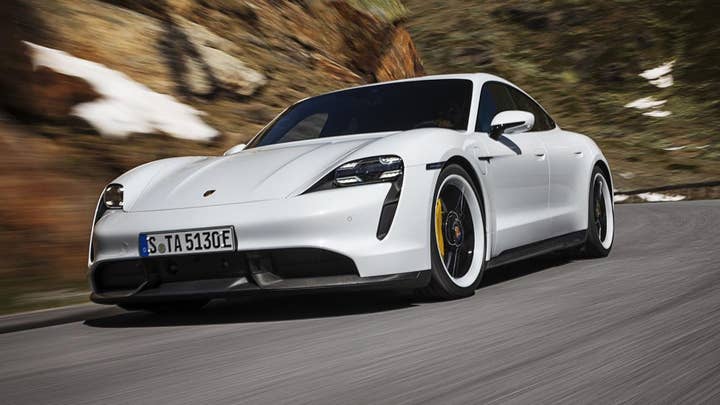Fox News Flash top headlines for Oct. 22
Fox News Flash top headlines for Oct. 22 are here. Check out what's clicking on Foxnews.com
Germany’s famous Nurburgring racetrack is home to regular record attempts, typically set by the world’s fastest cars to test their cornering and braking ability and sheer power and acceleration.

(Mini)
It’s the diverse selection of corners, dips and undulations in its 12.9 miles length that makes it such an appealing benchmark for performance vehicles.
But British car brand Mini is planning to set a new record — one where the driver sets a brisk lap without touching the brake pedal.
The publicity stunt will be done to highlight the adjustable regenerative braking in the all-electric Mini Cooper SE, due in Australia in mid-2020.
BMW-owned Mini has been late to the party on allowing drivers to adjust the level of energy recuperation, which gives the effect of pressing the brake pedal by reversing the flow of energy in the electric motor.
Mini says it will be trying to achieve “maximum efficiency” in tackling the challenging Nurburgring track without using the brake pedal.
The Mini Cooper SE is powered by a 135kW electric motor claimed to get the car to 100km/h in 7.3 seconds; brisk but far from ballistic.
A toggle switch allows the level of energy regeneration — or auto braking — to change between soft or “particularly aggressive”, the latter providing 0.19g of force without having to touch the brake pedal.
“The technological innovation offers the incentive for a very special type of challenge,” the brand said in announcing its planned challenge.
EV manufacturers still have different views on the best form of regenerative braking.
Nissan has developed an “e-Pedal”, for example, which when activated dials up more aggressive regenerative braking, even bringing the car to a complete stop.
Hyundai allows adjustment of the regenerative braking via paddles on the steering wheel.
And Tesla allows selection of two regenerative braking levels using the touchscreen.
Most electric cars typically provide some level of regenerative braking, although when the batteries are full it can be reduced.
But for Porsche’s upcoming Taycan — which recently set a time of 7 minutes, 42 seconds around the Nurburgring — the car simply coasts in its regular mode, as any petrol-powered car would if you lifted off the accelerator at speed. However, the driver can select some mild regenerative braking at the press of a button.
Whether Mini’s Nurburgring attack will create a new challenge among EV manufacturers remains to be seen.
No doubt Tesla — which is desperately trying to beat the time recently set by the Porsche Taycan — will be up for the challenge.





















